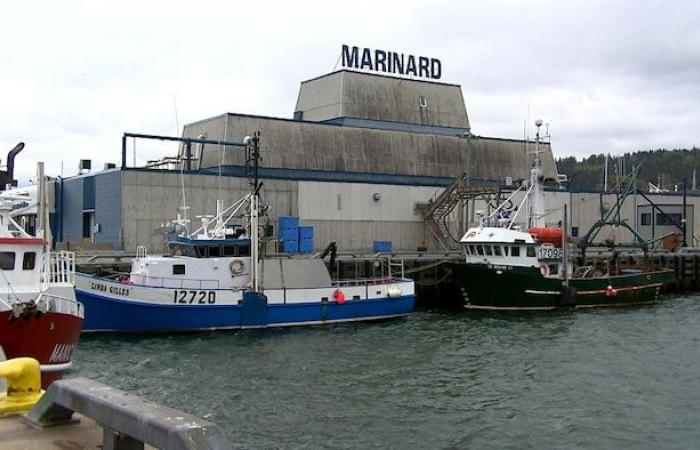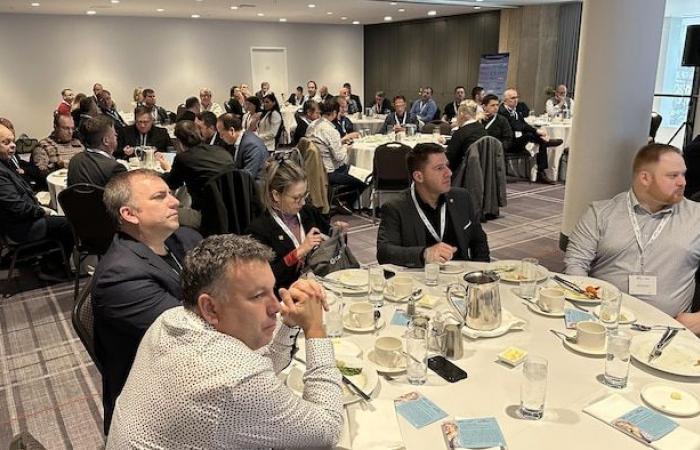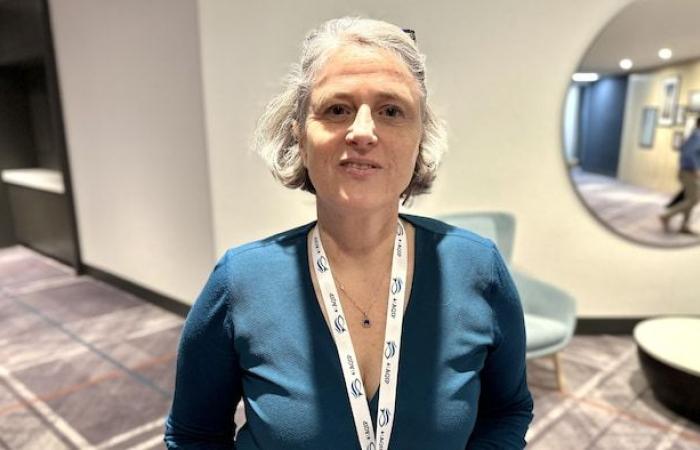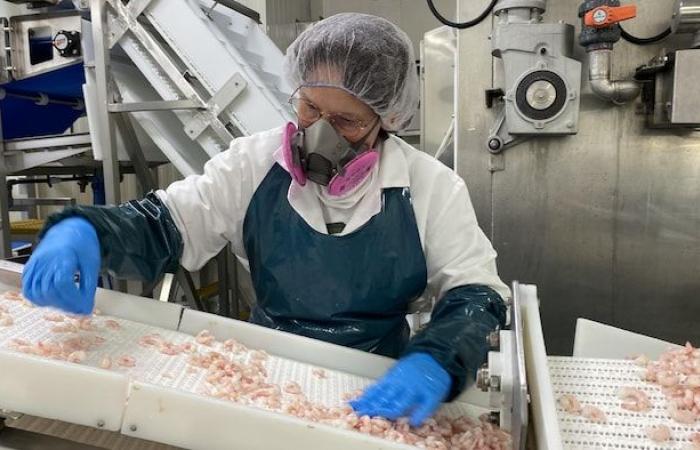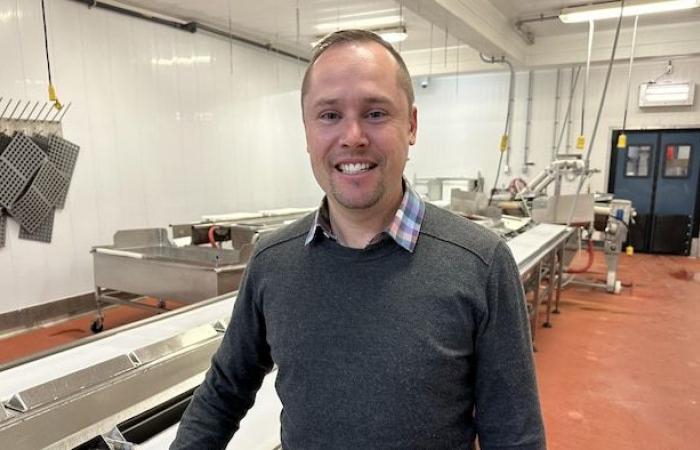With climate change leading to a decline and movement of stocks towards areas further north, fishing industries must turn more towards importing foreign products and other species to ensure the maintenance of hundreds of jobs in maritime Quebec.
This is particularly what emerges from 46e Fishing industry conference which began Tuesday in Quebec.
Some factories are going through a period of turbulence. This is the case of the only two shrimp processors still operating in Quebec: Crevette du Nord Atlantique from Anse-au-Griffon and Marinard from Rivière-au-Renard.
Open in full screen mode
The Marinard shrimp processing plant suspended its activities on September 1, 2023 before being bought, a month later, by brothers Bill and Georges Sheehan.
Photo: - / Luc Manuel Soares
Due to redfish predation, but especially because of warming water, shrimp stocks have collapsed in recent years in the estuary and Gulf of St. Lawrence, with a quota reaching 3,060 tonnes in 2024, i.e. 5 times less than the catches authorized the previous year.
But in 2023, the fishermen had barely managed to catch 5,000 tonnes of shrimp.
Open in full screen mode
More than 200 people are participating in the 46th edition of the AQIP congress.
Photo : - / Martin Toulgoat
The scientific organization Ouranos presented on Tuesday, at the opening of the congress, the impacts of global warming on the fishing sector as part of a conference offered to the 200 participants present.
The warming of water has the effect, for processors, of causing a variation in the supply, quality and, ultimately, the selling price of marine products.
The Ouranos consortium financially supported a research project led by scientists from the University of Quebec at Rimouski (UQAR) who looked at the behavior of northern shrimp in the face of climate change.
What they showed was that with climate change, the shrimp population would decline at the southern edge of the stock’s range and that populations would move north where the waters are colder. .
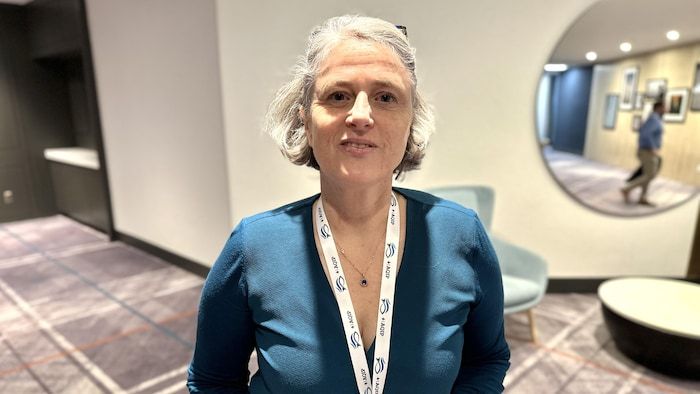
Open in full screen mode
Researcher Anne Blondot came to remind fishing industries in particular that each dollar invested in adapting to climate change yields benefits of 15 dollars.
Photo : - / Martin Toulgoat
Shrimp processors already sourced from abroad during periods when local landings were down, but with the drastic reduction in stocks in recent years, this practice has accelerated.
Whether it comes from Greenland, Norway, Denmark or Newfoundland and Labrador, imported shrimp significantly increases transportation costs, but ensures the survival of factories.
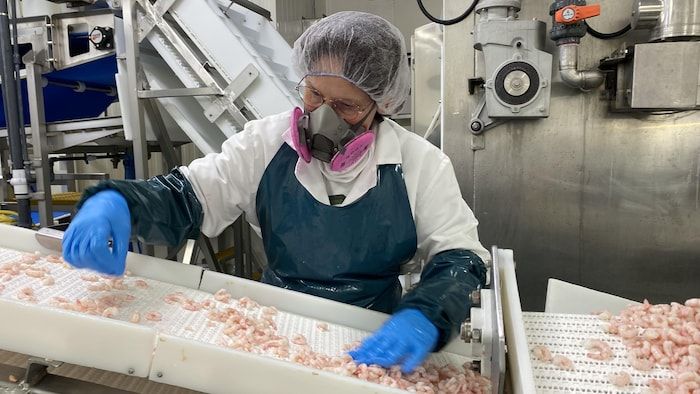
Open in full screen mode
With current production costs due to supplies from abroad, Quebec processors are targeting the North American market. But what will happen when Donald Trump comes to power? (Archive photo)
Photo : - / Martin Toulgoat
At Marinard, in Rivière-au-Renard, this business strategy allows us to maintain 70 jobs.
The factory was relaunched in 2023, after its acquisition by brothers Georges and Bill Sheehan, of the company E. Gagnon et fils.
If this imported shrimp allows us to have another five years, will the shrimp be back afterward? Are we going to have to diversify into growing species in Gaspésie like lobster?
asks Marinard factory co-owner Bill Sheehan.
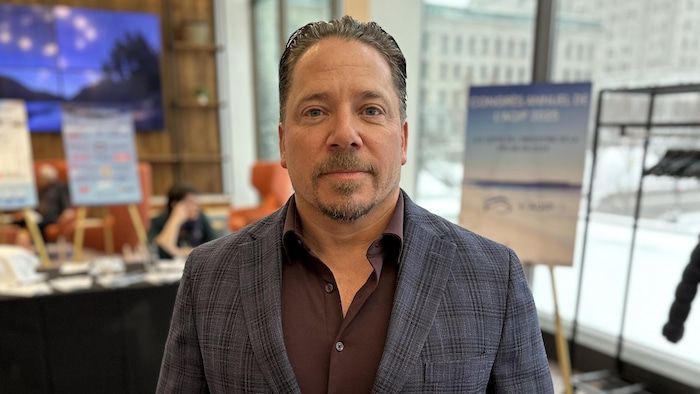
Open in full screen mode
Bill Sheehan will step down as president of the Fishing Industry Association during the 46th Congress after first being elected in 2020.
Photo : - / Martin Toulgoat
The outgoing general director of the Quebec Fishing Industry Association (AQIP), Jean-Paul Gagné, explains that this strategy allowed 30 years ago for factories affected by the moratorium on groundfish to maintain their activities. Only one processor closed its doors in Quebec following this crisis which shook the fishing world, he recalls.
When there was the moratorium on cod, the factories bought Russian cod while waiting to diversify, because diversification doesn’t happen overnight. Currently, to replace species like turbot which is in decline, we have redfish.
The groundfish processor Les Pecheries Gaspésiennes must also source its famous dried salted cod from outside, which has made Gaspésie famous for centuries.
Diversifying its activities is part of the company’s DNA, with variation in supply, but achieving profitability is not easy for the Rivière-au-Renard factory which must purchase cod from the Alaska or Norway.
We have always made dried salted cod. We source our supplies from outside, we make hot-smoked and cold-smoked products. We are in live lobster now with the purchase of tanks and redfish. So, it is important to diversify to face what we cannot control: the decline in stocks.
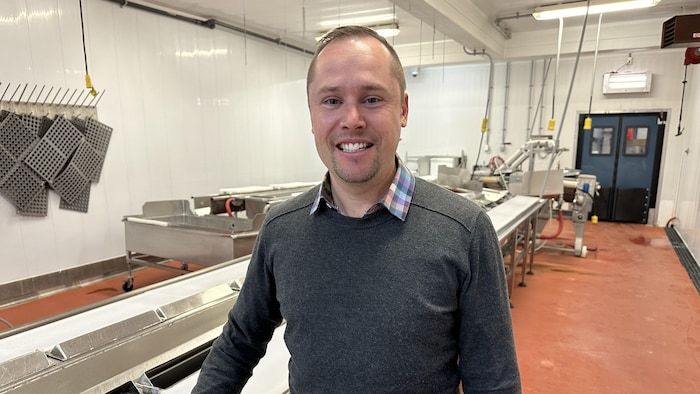
Open in full screen mode
Olivier Dupuis is general manager of the Rivière-au-Renard Les Pêcheries Gaspésiennes factory, specializing in groundfish processing.
Photo : - / Martin Toulgoat
New markets to conquer for shrimp
Before the pandemic and the collapse of northern shrimp stocks in the Estuary and Gulf, the main export market was Europe and the United Kingdom, but with current production costs due to supply that is done abroad, Quebec processors are targeting the North American market.
Norway or other Scandinavian countries have a competitive advantage with transport because the material is there, they are closer than us to Europe, but in North America, in the United States, we have contacts and we are already in the lobster and snow crab market and they are often the same customers, whether cruise lines or casinos
adds Bill Sheehan, who is also vice-president of the E. Gagnon et fils factory, a snow crab and lobster processor.
However, the possible customs tariffs envisaged by the American president-designate, Donald Trump, would short-circuit this business strategy, while being catastrophic for the snow crab industry whose main export market remains the United States .
For shrimp, there are none in the United States, but will the Scandinavian countries have customs tariffs? If the answer is no, it will hurt us. For snow crab, what would hurt even more, in addition to tariffs, would be if the new president lifted the embargo on Russian crab. There we would be doubly disadvantaged. But we live on hope and that it won’t happen
concludes the Gaspé processor and outgoing president of theAQIP.
The 46e Fishing Industry Congress continues until Thursday in Quebec.

